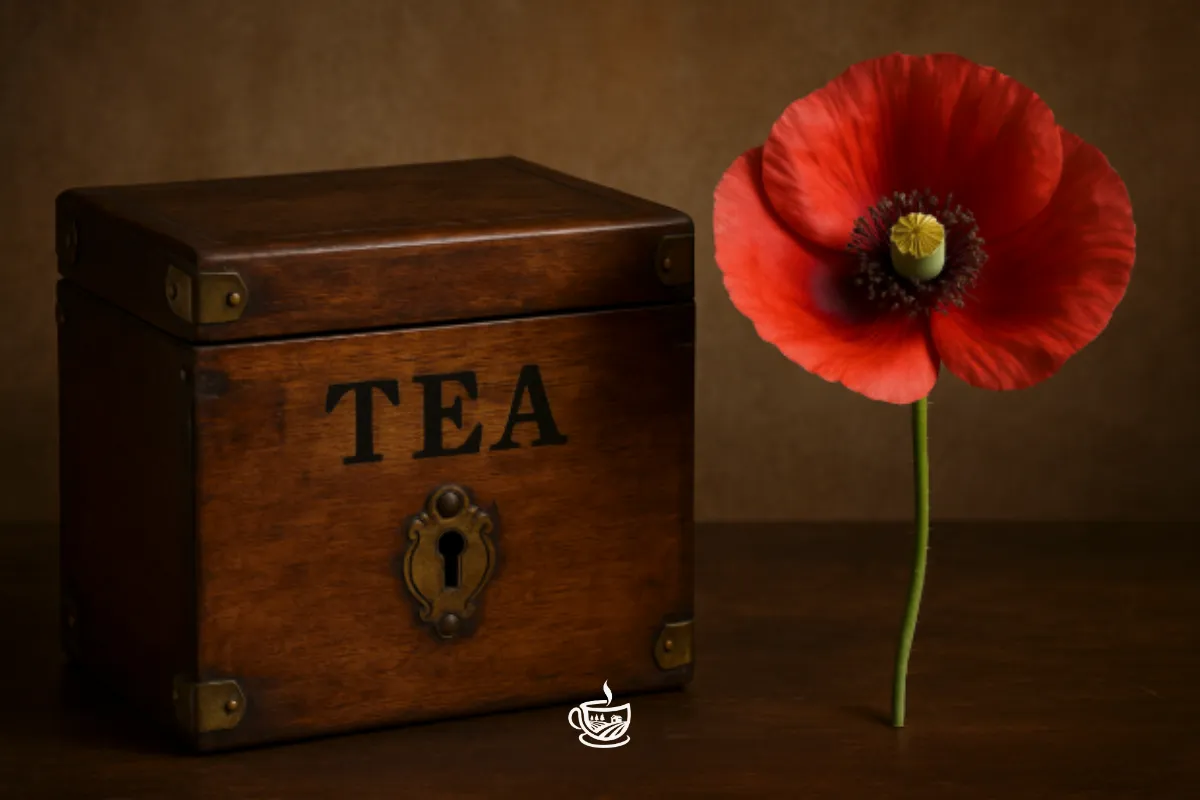
The Opium Wars and the Price of Tea: A History Steeped in Conflict
Tea may seem innocent, but its history is steeped in conflict. Discover how Britain’s thirst for Chinese tea led to war, addiction, and a reshaped global order.
Tea, Trade, and Trouble
That soothing cup in your hands? It’s steeped in more than just hot water. It’s brewed from one of the most explosive chapters in global trade.
The Opium Wars weren’t only about narcotics—they were about tea.
What started as Britain’s full-blown obsession with a leafy beverage turned into colonization, warships, and a global power shuffle.
Why Tea Triggered a Global Crisis
By the late 1700s, Britain wasn’t just enjoying tea—they were dependent. Morning, noon, and night, green and black teas from China fueled the British Empire’s break rooms, breakfast tables, and afternoon gossip sessions.
But there was one rather large hiccup:
China didn’t want anything Britain had to offer.
The Qing Dynasty insisted on silver for its tea exports—and Britain’s silver coffers were drying up faster than an over-steeped leaf.
Suddenly, this wasn’t just a national pastime. It was a national problem.
Enter: Opium
So, what do you do when you’re broke and hooked on tea?
If you’re 18th-century Britain, apparently… you push drugs.
From their colony in India, the British East India Company began smuggling opium into China. Demand soared. Addiction spread. Silver once pouring out of Britain now came rushing back in.
Let’s break it down:
Opium demand? Skyrocketed.
Britain’s silver reserves? Refilled.
China? Wrecked by addiction.
And when Chinese officials had the audacity to seize and destroy British opium?
Britain didn’t send diplomats.
They sent war boats.
The Opium Wars (1839–1842, 1856–1860)
These weren’t “misunderstandings.” These were wars fueled by addiction and empire—with tea at the center.
Here’s what came out of it:
Treaty of Nanking (1842): China handed over Hong Kong to Britain (no, not voluntarily).
“Unequal Treaties”: Chinese ports were forced open, and the opium trade was legalized.
Devastation: Addiction, loss of sovereignty, and a national identity crisis that echoed for generations.
All. Over. Tea.
And All Because of Tea?
Yes—tea was that powerful.
To Britain, Chinese tea wasn’t just delicious. It was an economic lifeblood.
It fueled factories and fueled empires.
And when silver ran low, morals were tossed overboard like soggy tea bags.
The Legacy in Your Cup
Today, tea feels like a hug in a mug. A moment of peace, ritual, and wellness.
But its past?
Let’s just say it had sharp elbows.
Behind every calming sip is a history of resistance, exploitation, and resilience.
It’s a complicated brew—and one worth remembering.
So next time you steep your favorite leaves, pause.
You’re not just drinking tea.
You’re drinking history—bold, bitter, and deeply brewed.
Wanna Read More?
Explore more from the ClemsonTeaFarm.com archives:
Wanna Geek Out?
We see you, tea nerd.
